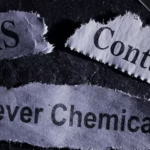
In a monumental move for public health and the environment, France has enacted a groundbreaking PFAS law, setting a powerful global precedent in the fight against “forever chemicals.” This ambitious legislation, one of the most comprehensive in the world, directly confronts the pervasive threat of per- and polyfluoroalkyl substances (PFAS). By banning these toxic compounds in a wide range of consumer goods and holding polluters financially accountable for their water discharges, France’s new PFAS law marks a decisive victory for environmental justice and signals a healthier, safer future for its citizens and ecosystems. This legislation is a clear statement of intent.
The ‘Forever Chemical’ Problem

PFAS are a class of over 12,000 synthetic chemicals known for their incredible resistance to heat, water, and oil. This durability is why they’ve been used for decades in everything from non-stick pans and waterproof jackets to cosmetics and firefighting foam. However, the same chemical bonds that make them so useful also make them nearly impossible to break down in the environment and in our bodies—hence the name “forever chemicals.”
They accumulate over time and are linked to a frightening list of health problems, including:
- Certain types of cancer (e.g., kidney and testicular)
- Hormone disruption
- Liver damage
- Weakened immune systems
- Developmental issues in children
What France’s Landmark Law Actually Does
Anchored in the polluter-pays principle, the French law takes a two-pronged approach to tackle the PFAS crisis head-on.
1. Phasing Out PFAS in Consumer Products

Effective from January 1, 2026, the law bans the manufacturing, import, and sale of products containing PFAS in several key categories:
- Cosmetics: Products applied to the skin, lips, or hair.
- Ski Wax: A direct source of environmental contamination in mountain ecosystems.
- Textiles: All clothing and apparel, with a temporary exemption for protective gear used by professionals like firefighters until 2030.
Notably, a proposed ban on PFAS-coated kitchen utensils, including non-stick cookware, was removed from the final bill due to intense industry lobbying. While a setback for advocates, the focus remains on the significant progress made.
2. Making Polluters Pay

The law introduces a new charge on industrial facilities that release PFAS into waterways. This is a direct application of the polluter-pays principle, shifting the financial burden of monitoring and cleanup from the French taxpayer to the corporations responsible for the pollution. Revenue generated will help fund water monitoring and decontamination efforts across the country.
A Ripple Effect Across the Globe
France’s bold action sends a powerful message to the international community and the chemical industry. It sets a new, higher standard for environmental regulation that other nations, particularly within the European Union, are likely to follow. By creating legal and financial risks for polluters, the PFAS law incentivizes companies worldwide to innovate and invest in safer, non-toxic alternatives. This legislation is not just a French victory; it is a blueprint for a global transition away from harmful, persistent chemicals, protecting our shared water resources and future generations from a toxic legacy.
🧩 Related Articles:
- Ireland 2025: Free Public Transport for Children Aged 5–8 Launches Nationwide
- Taranaki Maunga Legal Personhood New Zealand 2025: Mountain Granted Rights and Status as a Living Legal Person—A Landmark Step for Māori Rights and Environmental Stewardship
- The Netherlands 2025: How the Shift to a Four-Day Workweek is Revolutionizing Work, Well-being, and Productivity
- France adopts ‘one of the most ambitious’ laws on PFAS



